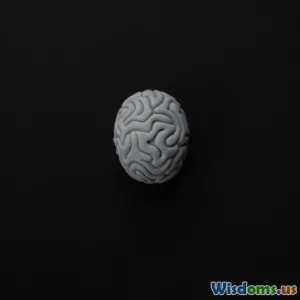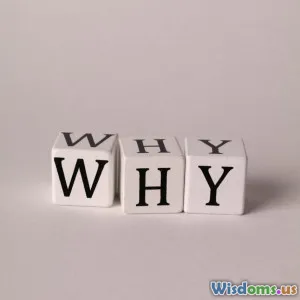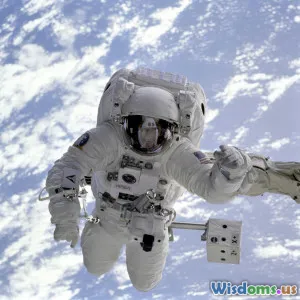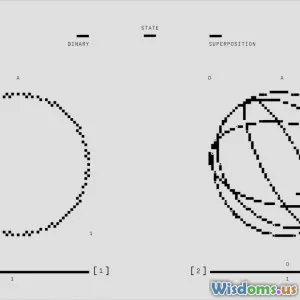
Finding Balance Between Science and Spirituality
7 min read Explore how science and spirituality intersect and how to harmonize these perspectives for a deeper understanding of life. (0 Reviews)
Finding Balance Between Science and Spirituality
Introduction
In an age where scientific breakthroughs bombard us daily and spiritual quests continue to attract millions, the tension between empirical science and spirituality feels more pronounced than ever. On one side, science offers measurable evidence, pushing boundaries of knowledge and technology. On the other, spirituality addresses the inner felt experience, mystery, and the search for meaning beyond what we can quantify. But must these be mutually exclusive? Or can we find a harmonious balance that honors both realms? This article explores how science and spirituality can coexist, complement, and enrich one another in the human journey toward understanding.
Understanding the Foundations
What is Science?
Science is the systematic pursuit of knowledge about the natural world through observation, experimentation, and evidence-based reasoning. Since the Scientific Revolution, figures like Newton, Galileo, and Darwin have shaped a powerful framework that explains phenomena through laws and data. Science demands repeatability, falsifiability, and objective proof.
For example, the Human Genome Project, completed in 2003, decoded our genetic makeup using rigorous scientific methods. It opened pathways for medicine, helping millions but also inviting profound questions about identity and destiny.
What is Spirituality?
Spirituality encompasses personal or collective practices and beliefs aimed at transcending the material world to seek meaning, connection, and inner peace. Unlike organized religion with structured dogma, spirituality is often individual and fluid, embracing meditation, mindfulness, rituals, or philosophical worldview.
Consider the practice of mindfulness meditation rooted in Buddhist traditions but now widely adopted globally, including in scientific studies to reduce stress and improve mental health. This illustrates spiritual practice influencing measurable outcomes.
The Apparent Divide Between Science and Spirituality
Conflicting Narratives
Historically, science and spirituality have faced conflicts, such as during the trial of Galileo or debates over evolution versus creationism. Some see science as dismantling the mystical and superstition, while spiritual perspectives critique science for lacking moral and existential depth.
The Limits of Empiricism and Rationalism
Science tends to focus on the 'how' but often sidesteps the 'why'. Spirituality invites questions about purpose, consciousness, and morality—areas that evade scientific quantification but are fundamental to human experience.
The Skepticism Factor
Many scientists remain skeptical of spiritual claims due to lack of empirical evidence, while many spiritual adherents distrust science perceived as reductionist or cold.
Points of Convergence
Quantum Physics and Consciousness
Recent advances in quantum physics challenge classical mechanistic views. Concepts such as quantum entanglement and the observer effect suggest that consciousness might influence reality in subtle ways—sparking dialogues between physicists and spiritual thinkers.
Physicist Amit Goswami states, “Quantum physics shows that consciousness is not just an epiphenomenon but related to the very fabric of reality.” Though controversial, this opens intellectual space for integration.
Psychoneuroimmunology: Bridging Mind and Body
Scientific research shows how mental states impact physical health, a principle long recognized by spiritual traditions. The phenomenon that prayer or meditation can correlate with improved health demonstrates measurable intersections.
The Study of Meditation
Thousands of studies validate meditation’s effects on brain plasticity, immune function, and emotional regulation—providing scientific credence to spiritual practices.
Bridging Science and Spirituality in Daily Life
Cultivating Scientific Curiosity and Spiritual Awareness
Instead of choosing one over the other, embracing both curiosity and inner exploration fosters holistic growth. For example, Carl Sagan celebrated the wonder of the cosmos scientifically, but also acknowledged the poetic, spiritual awe it inspired.
Developing Integrative Practices
Mindfulness-based stress reduction (MBSR), influenced by Buddhist meditation, has been empirically validated to reduce anxiety and chronic pain. It reflects how spiritual practices can be methodically adapted for health and well-being.
Encouraging Open Dialogue
Academic and public conversations bridging neuroscientists, philosophers, theologians, and cultural leaders promote understanding beyond stereotypes.
Challenges in Integration
Avoiding Reductionism
Reducing spirituality to neurological activity risks missing its subjective richness.
Maintaining Scientific Rigor
Conversely, spirituality framed without critical evaluation risks falling into pseudoscience.
Cultural and Personal Differences
Balancing respectfully requires acknowledging diverse beliefs without forcing homogenization.
Conclusion: Toward a Balanced Vision
The quest to find balance between science and spirituality is not about forcing agreement but embracing a nuanced acceptance of the complexity of reality. Science fuels progress through evidence and innovation; spirituality nurtures wisdom through meaning and experience. Together, they offer a fuller lens to explore the universe and our place in it.
By appreciating their strengths and respecting their limits, individuals can live more integrated, insightful lives—fueling curiosity while honoring our deepest human longings for connection, purpose, and transcendence.
As Albert Einstein eloquently put it, “Science without religion is lame, religion without science is blind.” Bridging these worlds invites us to walk both paths with open hearts and open minds.
Rate the Post
User Reviews
Popular Posts





















